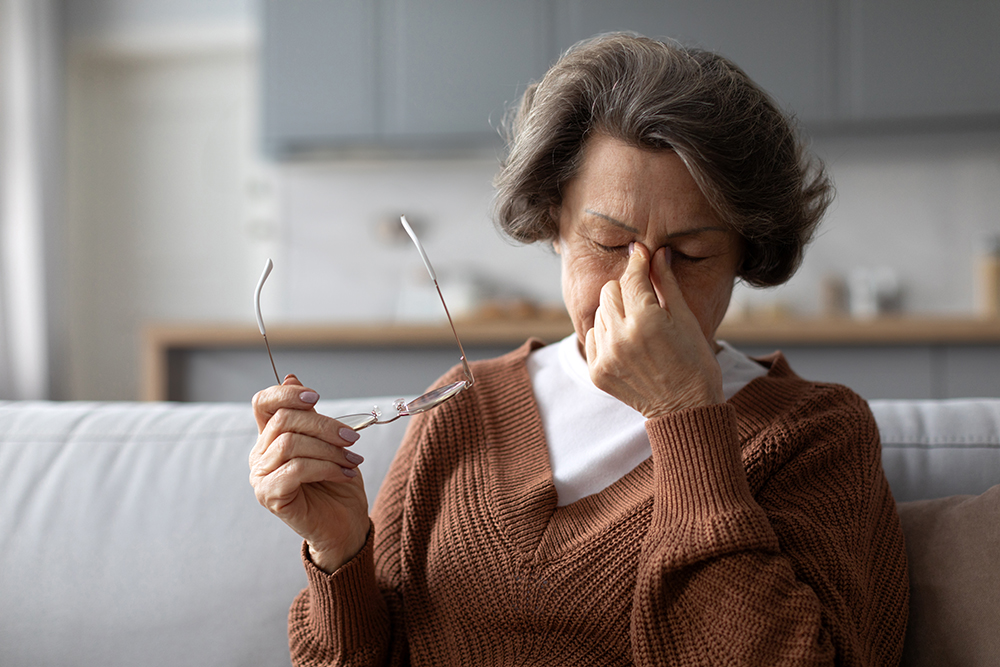Anxiety is the world’s most prevalent mental health disorder, affecting people at all stages of life. However, the signs and effects of anxiety in older people can be quite different, causing them to go unnoticed.
Characteristics of Anxiety in Older Adults
Anxiety’s hallmarks include persistent feelings of worry, anxiety or fear that are severe enough to interfere with daily activities. It includes physical symptoms such as heart palpitations, increased heart rate, rapid breathing, sweating and fatigue. While anxiety is a natural human response to stress, it becomes a concern when it is extreme, which may result in other difficulties like panic disorder or agoraphobia.
Anxiety often presents differently across various demographics. Your loved one’s symptoms may overlap with other medical conditions or masquerade as typical signs of aging, which can complicate diagnosis and treatment.
- Excessive worry about health, finances or family
- Avoiding social interactions
- Compulsive or repetitive behaviors
- Disturbed sleep or appetite
- Increased irritability or mood swings
- Physical symptoms such as gastrointestinal issues or chronic pain
Why Anxiety in Older Adults Often Goes Unnoticed
There are several reasons anxiety and related mental health disorders often fly under the radar in older adults.
- Normalization: Many older people and their caregivers dismiss anxiety symptoms as a normal part of aging, leading to underdiagnosis and undertreatment.
- Overlap with physical disorders: If you notice things like fatigue, trouble sleeping and muscle tension in your loved one, you may dismiss them as side effects of physical illnesses or medications that are common in older age.
- Reluctance to speak up: Older adults may feel a stigma about mental health issues, believing they are something to endure silently. People in this generation may think it is better to “tough it out” instead of asking for help.
Supporting an Older Adult With Anxiety
Helping a loved one manage anxiety involves a compassionate, yet practical, approach.
- Encourage professional treatment: Gently persuade your loved one to seek help from a licensed provider. You may offer to drive them to an appointment with their general practitioner, who can refer them to a mental health specialist if necessary.
- Stay informed: Learn about the symptoms of anxiety and effective treatment strategies. Understanding what your loved one is going through can make you more empathetic.
- Promote social interaction: Encourage your loved one to participate in life more. For example, depending on their abilities, they might join a club, volunteer in the community or spend more time with family and friends.
- Improve the mind-body connection: There is a link between physical and mental health. Help your loved one find a form of exercise they enjoy, like walking, yoga or swimming.
- Regular routines: Predictability can reduce anxiety by reducing the number of daily decisions your loved one must make.
Specialized Older Adult Treatment Program
Anxiety in older adults is a significant issue that deserves attention and care. Recognizing the signs and understanding the unique challenges can improve quality of life for someone you care about.
Hemet Valley Recovery Center & Sage Retreat understands the value of age-appropriate treatment. We provide holistic care that addresses the specific needs of adults aged 55 and up, ensuring they receive the compassionate and comprehensive attention necessary to manage anxiety effectively. If your loved one struggles with their mental and behavioral health, contact us today to learn about our solutions.


